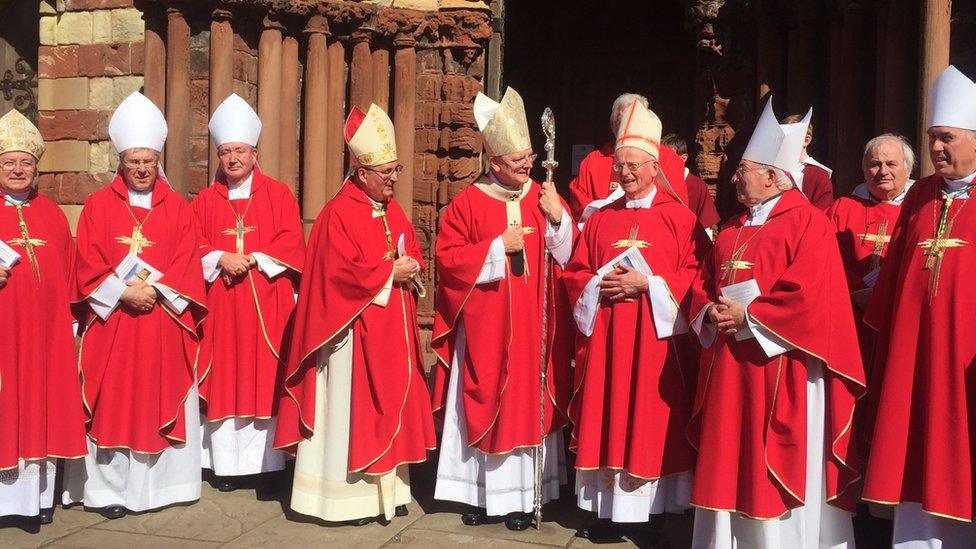The monks who bought their own Scottish island
- Published
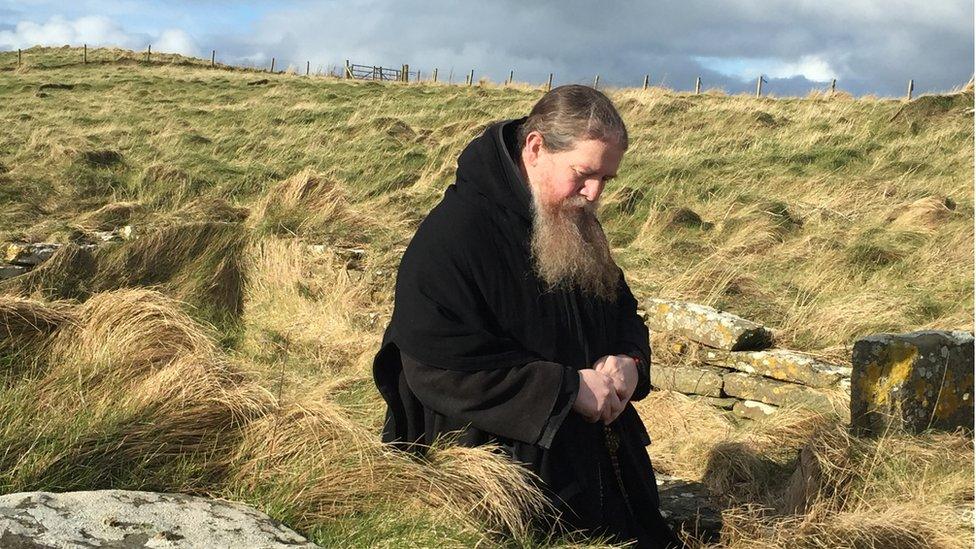
The ruins of St Nicholas' Chapel date back to the 11th Century, but are built on top of an even older church.
Twenty years ago, an order of Catholic monks bought a small Orkney island where they could celebrate the Latin Mass. They are continuing a religious tradition which gave Papa Stronsay its name.
Brother Nicodemus Mary loves to pray in private in the ruins of St Nicholas' Chapel. It dates back to the 11th Century, but this Orkney island's religious links run even deeper.
It is thought that monks worshipped on the island back in the time of St Columba, in the 6th Century. Vikings settled there in the 8th Century and named it Papa Stronsay - which means Priests' Island of Stronsay.
The original monastery was abandoned in the 16th Century - but for the last 20 years the island has once again been home to monks who celebrate Holy Mass in the language which would have been used by priests many centuries ago.
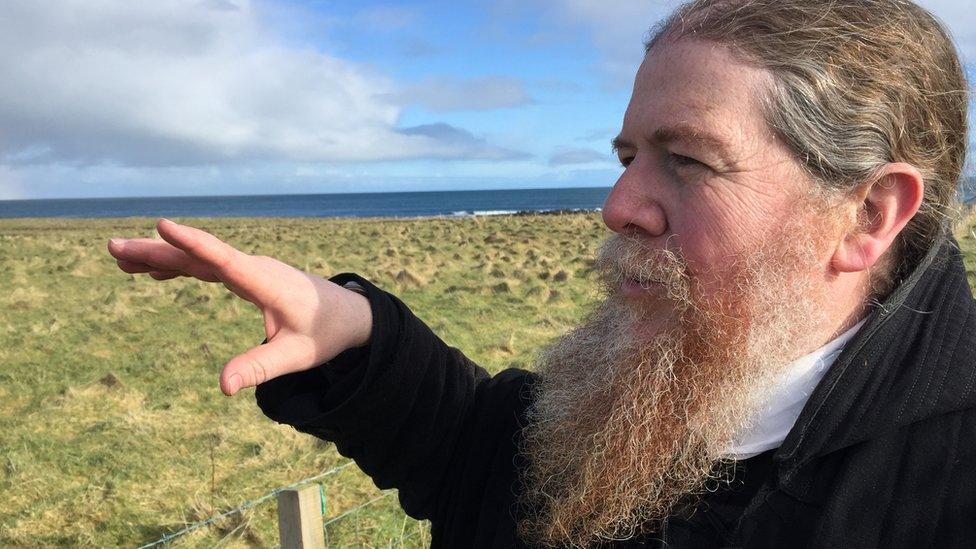
Brother Nicodemus Mary points out the wealth of archaeology and history along Papa Stronsay's coast
The order - the Sons of the Most Holy Redeemer, also known as the Transalpine Redemptorists - was founded in the late 1980s to maintain the practise of celebrating the liturgy in Latin.
At the time the Roman Catholic Church was modernising its services, and encouraging priests to use local languages - so insisting on the old ways was seen as an act of rebellion.
But the monks are now back in full communion with the Diocese of Aberdeen and the worldwide church.
They bought Papa Stronsay after the order's founder, Father Michael Mary, and some of the priests and brothers visited Orkney on holiday.
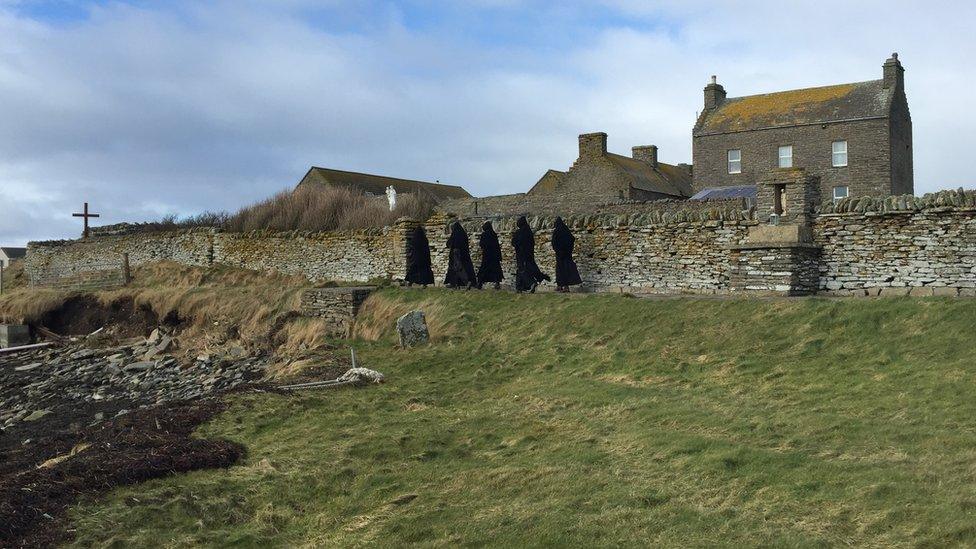
The monks - in their black habits - have become a familiar sight in Orkney
Father Michael - whose grandmother had lived in Orkney - said they had originally wanted to find a small house they could use for retreats and study leave.
But a Kirkwall estate agent also gave them the details of the island, which was being sold by local farmer Charles Smith.
"On the back of the particulars of Papa Stronsay, it had some of the history of the island. So we thought: 'Could we buy it'?
"We came out here on Valentine's Day and as soon as we stepped on the island, we thought: 'We've got to come here'," Father Michael told BBC Radio Orkney.
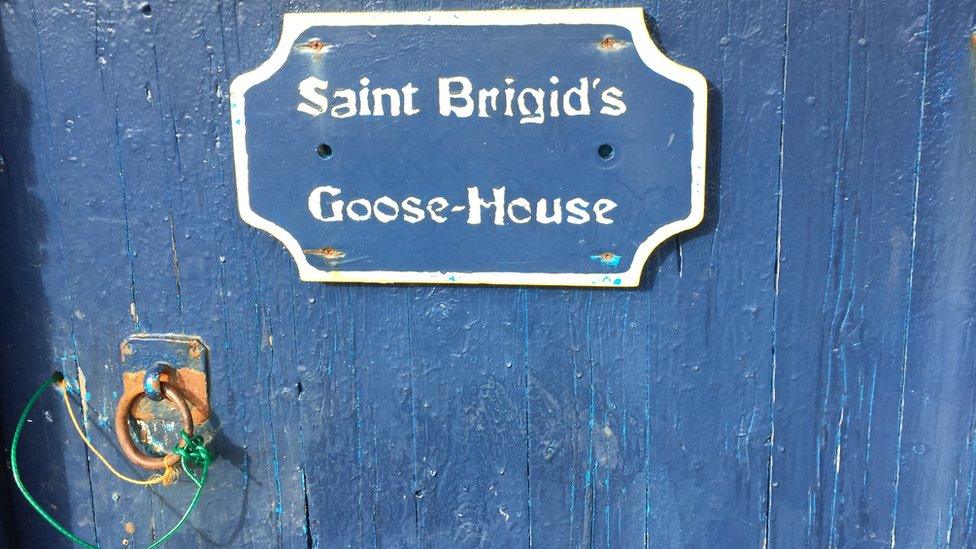
The community tries to be as self sufficient as possible...
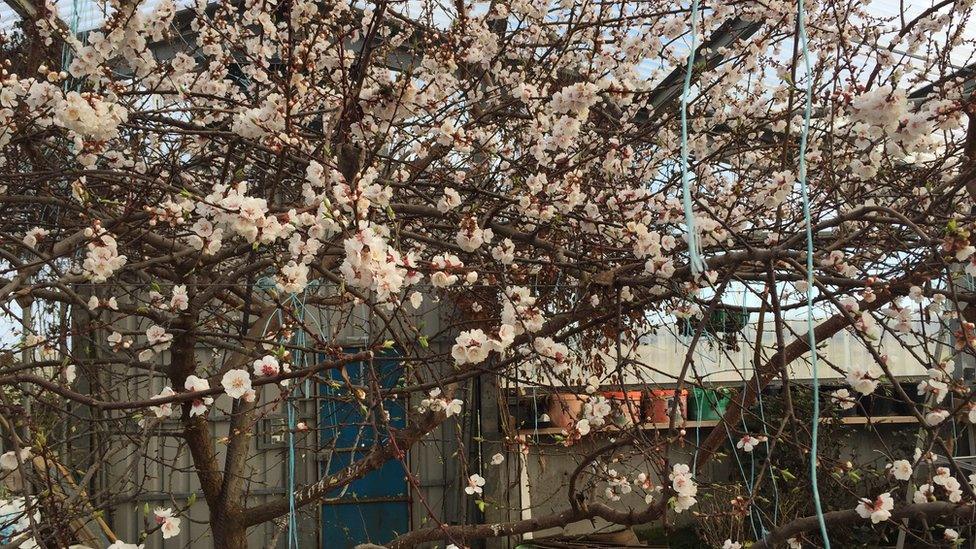
... with a greenhouse in which they grow apples, kiwi fruit, vegetables. and even peaches, apricots and cherries
But there was one stumbling block - the order didn't have any money.
Mr Smith agreed to reduce the asking price from £250,000 to £200,000.
"That was fantastic. He was very very kind, but we still didn't have any money," said Father Michael.
The community, which was then based on the Isle of Sheppey in Kent, embarked on nine days of prayer and fundraising - which left them about £30,000 short of the total they needed.
But then the phone rang and someone offered to donate the rest of the money. "So by the end of the ninth day, we had all the money to buy Papa Stronsay," recalled Father Michael.
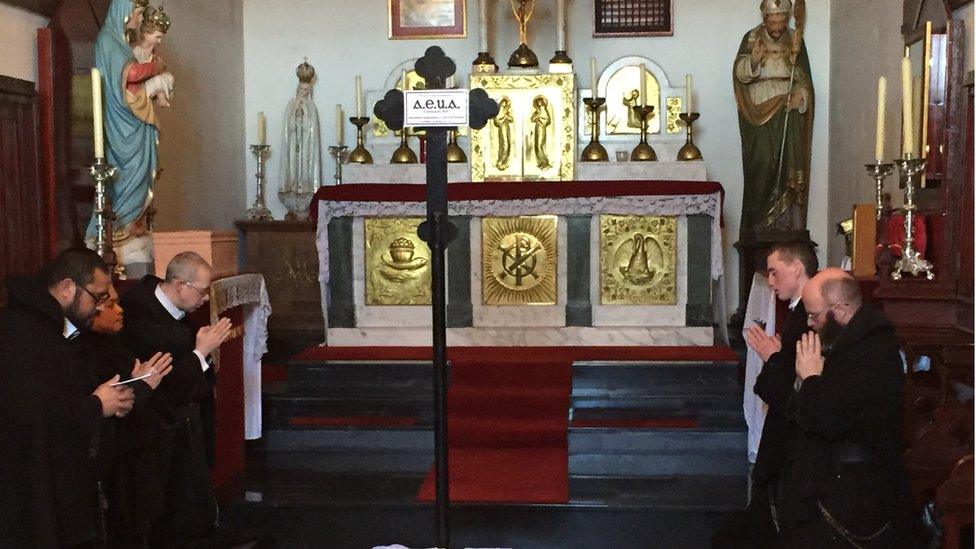
After lunch the community gathers to remember, and give thanks for, benefactors who have supported them in the past but who have since died
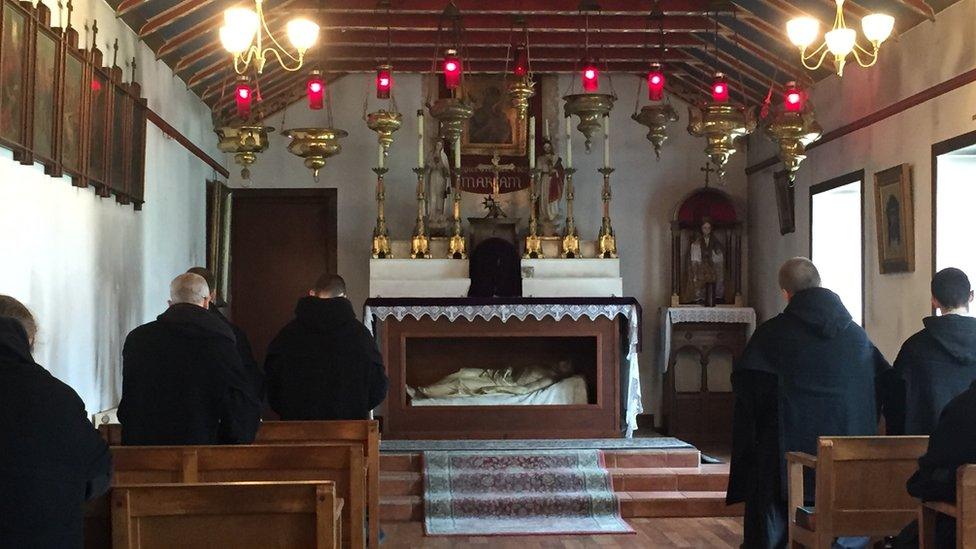
The community gathers for prayers through the day - from seven in the morning
There are currently about a dozen members of the order living on the island. It has a similar number at its other base in New Zealand.
For the monks, a typical day starts at 05:00 with an hour of individual meditation in their cells, followed by two hours of prayer in the chapel.
After breakfast, the morning is spent in study and work before a bell rings at midday to remind the community to quietly recite the Angelus to themselves as an act of private devotion.
That's followed by another service and then lunch, during which the brothers listen to improving readings and sacred texts.
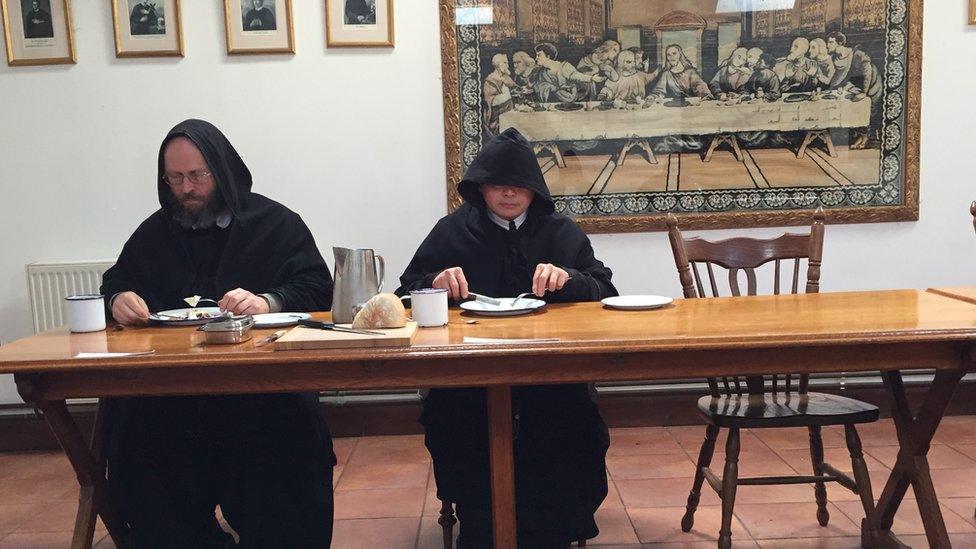
The community eats in silence, while listening to improving readings
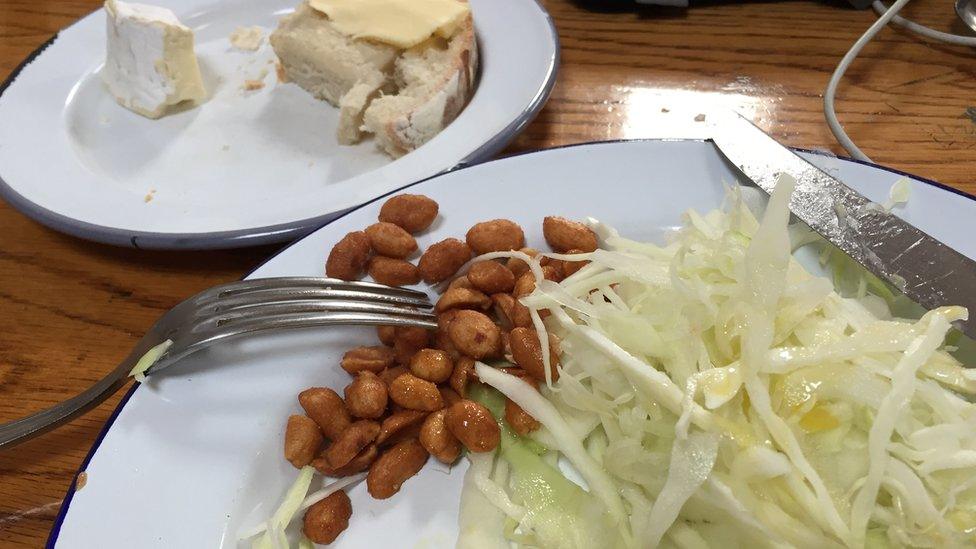
A three course lunch might start with shredded cabbage with nuts and raisins and an oil and vinegar dressing, served with cheese and homemade bread ...
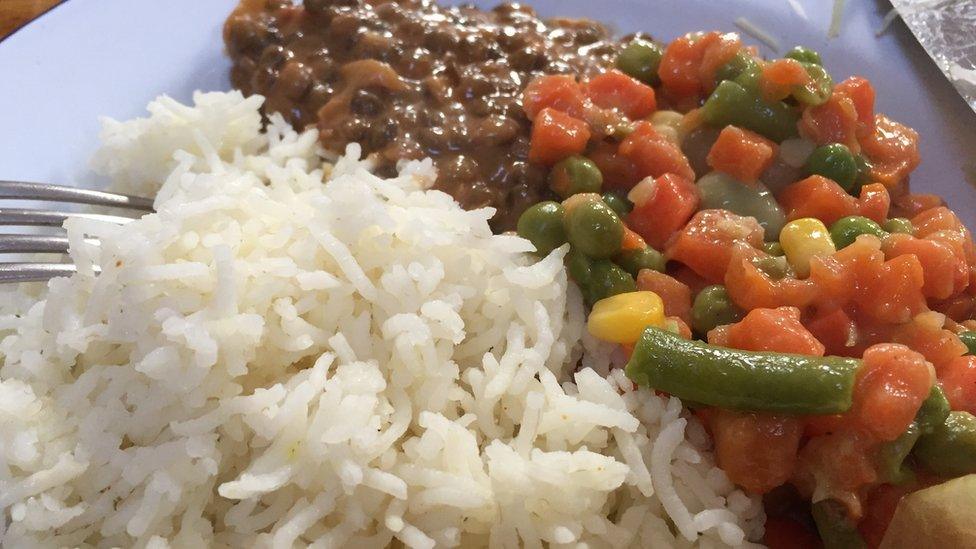
... followed - since it's Lent - by a meat-free main course of lentils, vegetables and rice...
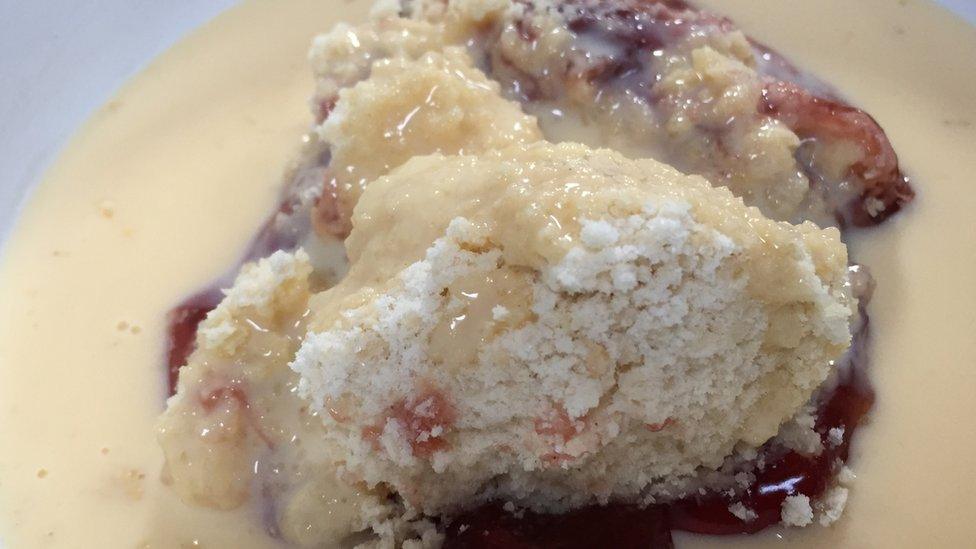
... with strawberry crumble and custard for pudding
The remainder of the day includes prayers, work and possibly some relaxation, before supper, more prayers and then the "great silence". The lights and generator are switched off at 21:30.
Brother Nicodemus says it is very special to think that they pray the same prayers, in the same language, in the same places as priests did centuries ago.
"We share a brotherhood with them in a very tangible way", he says.
"It's an entire life, an entire sacrifice, an entire mindset, an entire faith. It's everything. The centuries don't really separate us at all."
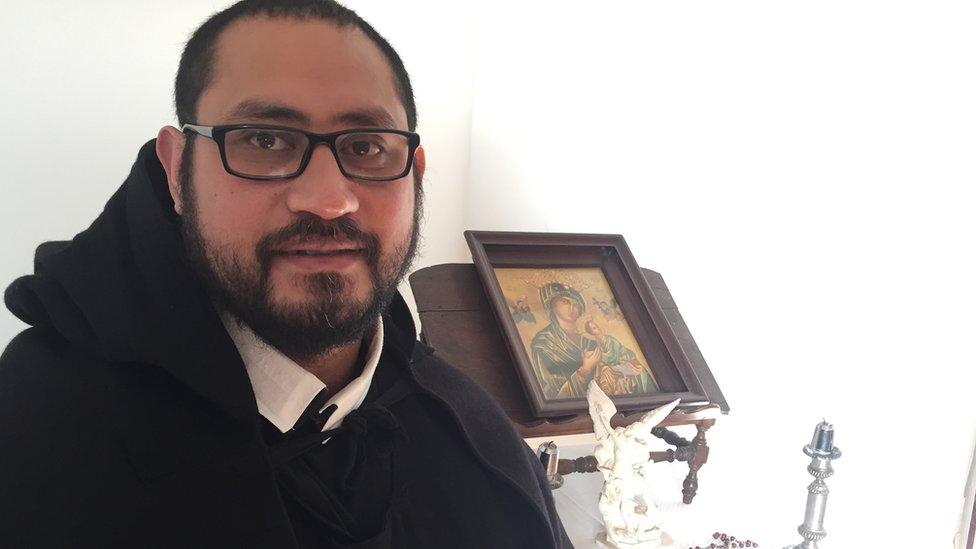
Father Magdala Maria says it is a privilege to work and worship in Papa Stronsay
Father Magdala Maria, the rector of the community in Papa Stronsay, said it was "a privilege" to visit sites used by their predecessors.
"It continues that procession, that chain, of people who've been here, and prayed here," he said.
"The monks who lived here in the 7th and 8th centuries? We wouldn't be able to speak to them. But we'd be able to pray with them."
All images are copyrighted.
- Published8 January 2020
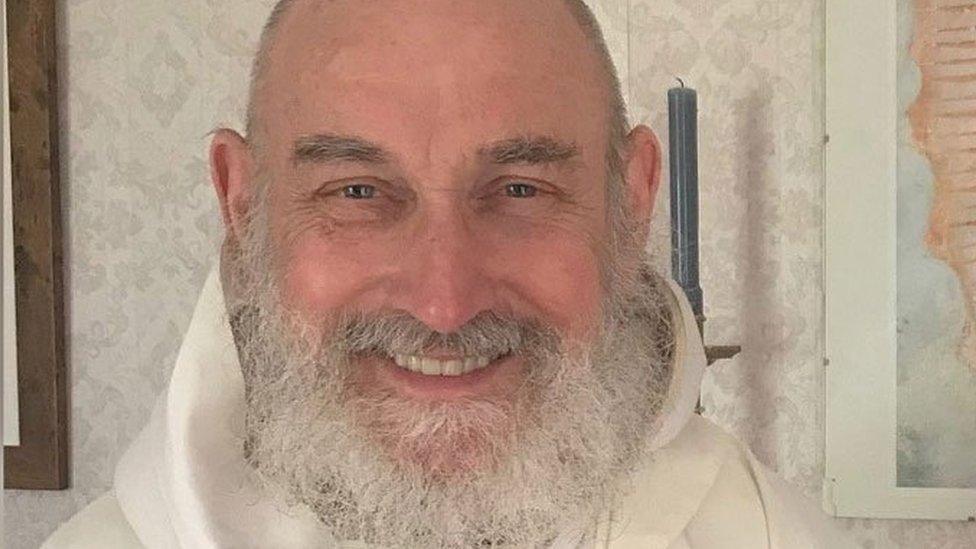
- Published31 March 2019
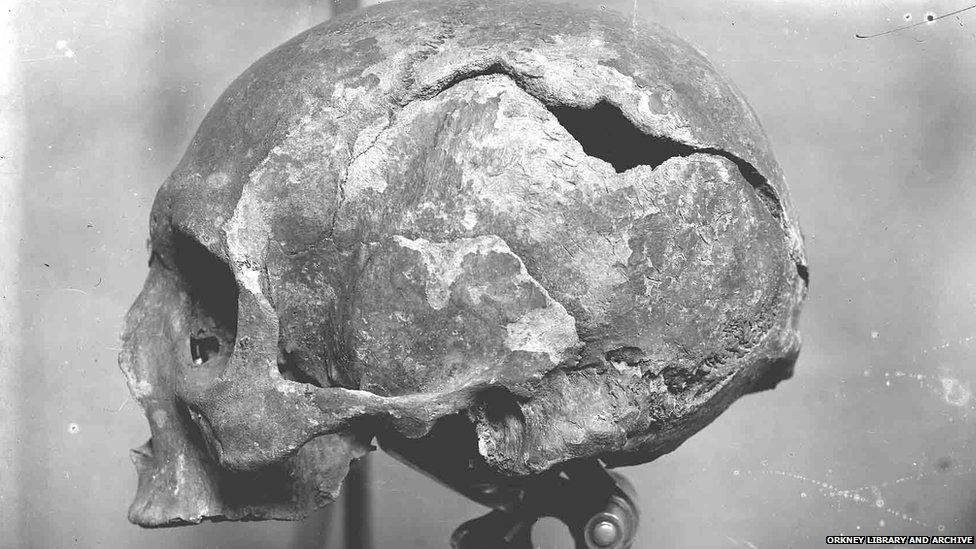
- Published30 July 2017
